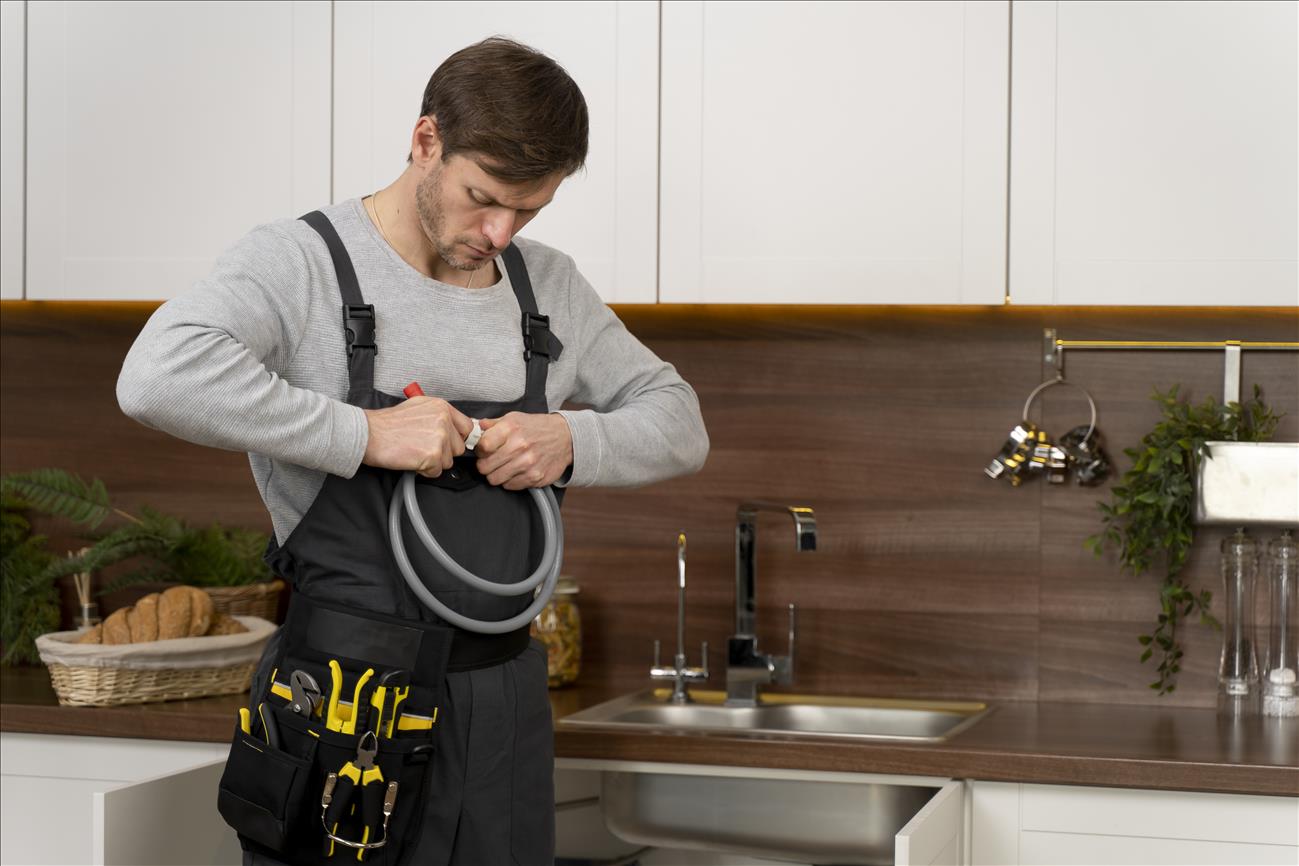How To Find Professional Plumbers For Your Residential Needs


Having good plumbing is super essential when owning a home. Think of it like this: you want water to flow smoothly from taps and drains to work without problems. But sometimes, things go wrong.
Pipes might leak, drains get stuck, or there's a big emergency with your plumbing. That's when you know you need a skilled plumber to fix things. Finding the right plumber for your house can be challenging because so many are out there.
In this blog, we will help you figure out how to find a great plumber for your home.
Understanding Your Plumbing Needs:
Identifying your plumbing needs involves more than spotting a leak or a clog. It's about understanding the extent of the issue. For instance, a seemingly minor leak might be a symptom of a more significant underlying problem within your piping system.
By inspecting the specific area of concern and noting any related issues, you can better articulate the problem to potential plumbers. Consider how it impacts your plumbing if you plan a renovation or upgrade.
Will you need to relocate fixtures or upgrade your system's capacity? Being clear about these specifics helps you find a plumber equipped for your unique requirements, ensuring a better plumbing service.
Researching Credentials & Licensing:
Beyond checking if they hold a license, delve into the type of training they've undergone and any certifications they might have acquired. Also, inquire about their affiliations with professional bodies or trade organizations within the plumbing industry.
These associations often uphold stringent standards their members must meet, reflecting a commitment to excellence and ongoing education. Understanding these credentials gives you a clearer picture of a plumber's expertise.
Seeking Recommendations and Reviews:
While seeking recommendations from friends and family is valuable, explore online platforms where customers share their experiences. Look for patterns in the reviews, paying attention to aspects like punctuality, quality of work, and problem-solving skills.
A plumber might have an excellent reputation but need a better fit for your needs. Combining personal referrals with broader online reviews, this dual approach offers a more comprehensive understanding of a plumber's reliability and capabilities.
Obtaining Multiple Quotes:
Remember that price isn't the only factor to consider when collecting quotes. A higher price doesn't always guarantee superior service, and a lower quote might not cover all necessary aspects of the job. Besides the overall cost, delve into the breakdown of expenses.
Understand what each quote includes: materials, labor, potential extra charges, and the timeline for completion. This detailed assessment enables you to make an informed decision based on a comprehensive understanding of what you'll pay for.
Assessing Experience and Specializations:
Experience isn't solely about how many years a plumbing company has been around but also the various projects they've handled. A plumbing company with experience in different scenarios - from fixing everyday issues to tackling complex installations - is better equipped to handle unforeseen challenges.
Ask about any specialized expertise they might have. Some plumbers excel in specific areas like water heater installations, while others might specialize in working with particular types of piping materials or eco-friendly systems.
Understanding their areas of expertise helps match their skills to your needs.
Checking Insurance Coverage:
Beyond simply verifying insurance coverage, understand what it includes. A comprehensive insurance policy covers not just the plumber but also your property and any potential damage that might occur during the job.
Enquire about liability coverage and workers' compensation to ensure both parties are adequately protected in case of accidents or property damage. A plumber with comprehensive insurance demonstrates a commitment to their work and your peace of mind.
Inquiring About Guarantees and Warranties:
Warranties and guarantees vary between plumbers and often cover different aspects of their work. Some might offer a satisfaction guarantee, ensuring they rectify any issues arising post-service.
Others might provide warranties on specific parts or installations, promising to replace or repair them within a specified period. Understanding these guarantees and warranties gives you confidence in the longevity of the plumber's work and how they stand behind their services.
The Importance of Regular Maintenance:
Regular maintenance isn't just about fixing immediate problems but preventive care for your plumbing system. It involves periodic inspections, cleaning, and minor repairs to prevent major issues from occurring.
Discussing a maintenance plan with your plumber ensures your system operates efficiently and extends its lifespan. It's an investment that saves you from potential headaches and costly repairs in the future.
Considering Environmental Consciousness:
Environmental awareness is increasingly vital. Some plumbers specialize in eco-friendly practices, offering water-saving fixtures, energy-efficient systems, or methods that reduce water wastage.
Discussing these eco-conscious possibilities with a plumber aligns your values with their services. Moreover, inquire about their knowledge of local regulations concerning water usage and eco-friendly plumbing practices.
A plumber well-versed in these aspects contributes to sustainability and helps you make informed decisions that benefit the environment and potentially save on utility costs in the long run.
Evaluating Customer Service and Aftercare Support:
A plumber's commitment to customer satisfaction continues after completing the job. Look beyond the service itself and consider their approach to aftercare support. A good plumber ensures their customers are satisfied during the project and afterward.
Inquire about their policies regarding callbacks for potential issues, routine follow-ups post-service, or advice on maintaining your plumbing system.
A plumber who values long-term relationships with their customers through excellent aftercare support demonstrates reliability and dedication beyond the immediate job, making them a worthy choice for ongoing plumbing needs.
Conclusion:
Selecting a plumber involves much more than a quick search or picking the lowest quote. It's about gathering comprehensive information, understanding the intricacies of your plumbing needs, and building a partnership based on trust and expertise.
Armed with an in-depth understanding of these considerations, you're better prepared to choose a plumber who fixes immediate issues and ensures your home's plumbing remains efficient and reliable for years to come.
